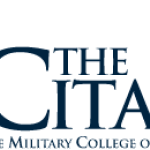- Domeniu: Education
- Number of terms: 941
- Number of blossaries: 0
- Company Profile:
The turning point of the action in the plot of a play or story. The climax represents the point of greatest tension in the work.
Industry:Literature
An intensification of the conflict in a story or play. Complication builds up, accumulates, and develops the primary or central conflict in a literary work."
Industry:Literature
A struggle between opposing forces in a story or play, usually resolved by the end of the work. The conflict may occur within a character as well as between characters.
Industry:Literature
The associations called up by a word that goes beyond its dictionary meaning. Poets, especially, tend to use words rich in connotation.
Industry:Literature
A customary feature of a literary work, such as the use of a chorus in Greek tragedy, the inclusion of an explicit moral in a fable, or the use of a particular rhyme scheme in a villanelle. Literary conventions are defining features of particular literary genres, such as novel, short story, ballad, sonnet, and play.
Industry:Literature
Onomatopeja (grč. onoma = ime, poiein = napraviti) glasovna je figura oponašanja ili prenošenja zvukova iz prirode u nekom književnome djelu jezičnim sredstvima.
Industry:Literature
The voice and implied speaker of a fictional work, to be distinguished from the actual living author. See Point of view.
Industry:Literature
A figure of speech in which a closely related term is substituted for an object or idea. An example: We have always remained loyal to the crown. See Synecdoche.
Industry:Literature
A comparison between essentially unlike things without an explicitly comparative word such as like or as. An example is "My love is a red, red rose." Compare Simile.
Industry:Literature
A contrast or discrepancy between what is said and what is meant or between what happens and what is expected to happen in life and in literature. In verbal irony, characters say the opposite of what they mean. In irony of circumstance or situation, the opposite of what is expected occurs. In dramatic irony, a character speaks in ignorance of a situation or event known to the audience or to the other characters.
Industry:Literature
